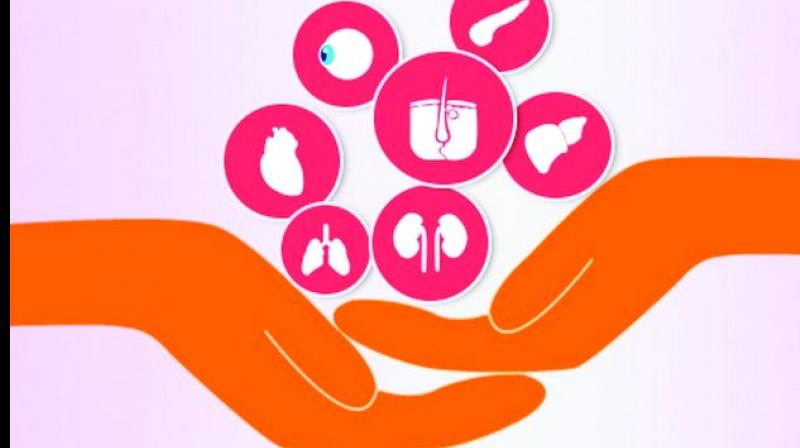Organs go waste over lack of patients' data, coordination
Even at a time when importance of organ donation is stressed citing how precious lives could be saved.

Hyderabad: Even at a time when importance of organ donation is stressed citing how precious lives could be saved, Indian Society for Heart and Lung Transp-lantation (ISHLT) shares a sad tale. 867 donated organs, including heart and lungs, got wasted as many times, it was not possible to transport it to a recipient and in other cases, blood matching process was not carried out on time.
Organs such as heart and lungs can be kept in cold storage for only four to five hours. Indian Society for Heart and Lung Transplantation stated that in 2015, 418 hearts and lungs got wasted and the number rose to 449, in the country, in 2016. Organs are collected through government’s Jeevandan Scheme but co-ordination and communication across States, about availability of a donor requires to be further strengthened.
The blood groups of recipients have to match which is really important. Dr A.G.K Gokhale, consultant heart and lung transplant surgeon and president of Indian Society for Heart and Lung Transplantation explained that the process of getting an organ from a donor in another state is a cumbersome and slow process.
“There is a need to streamline this so that the available organ can reach the recipient’s hospital on time. Often by the time a donor’s family gives consent and doctors reach there to evaluate the available organs, too much of time lapses, making the organs non-usable.”
Another major issue which is being seen is transporting the organs as its cold chain life is short. Heart and lungs can be kept for only four to five hours and require transport over air. Often the recipients’ family can’t afford such huge cost of transportation. Also, in private hospitals, a transplant suregery cost ranges from Rs 25 lakhs to Rs 30 lakhs.
These are major constraints and for proper utilisation of organs, ISHLT has urged Central Government to have more government hospitals where such procedures can be carried out and also have Air Force and Defence airplanes catering to needs for air-lifting the organs. This will help to utilise the organs and also save lives.
It has been found that from 1994 to 2008, only 30 heart transplant surgeries were carried out. From 2008 to 2018, 790 heart transplants were carried out. The success rate of heart transplant in India is a maximum of 17 years, after surgery, according to All-India Institute of Medical Sciences which has performed more than 50 heart transplants. Lung transplant success rate is 80 per cent and it can be noted in the first one month after transplant. Life expectancy is supposed to increase by three years, according to transplants carried out in India. Approximately 100 lung transplants have been carried out so far.

